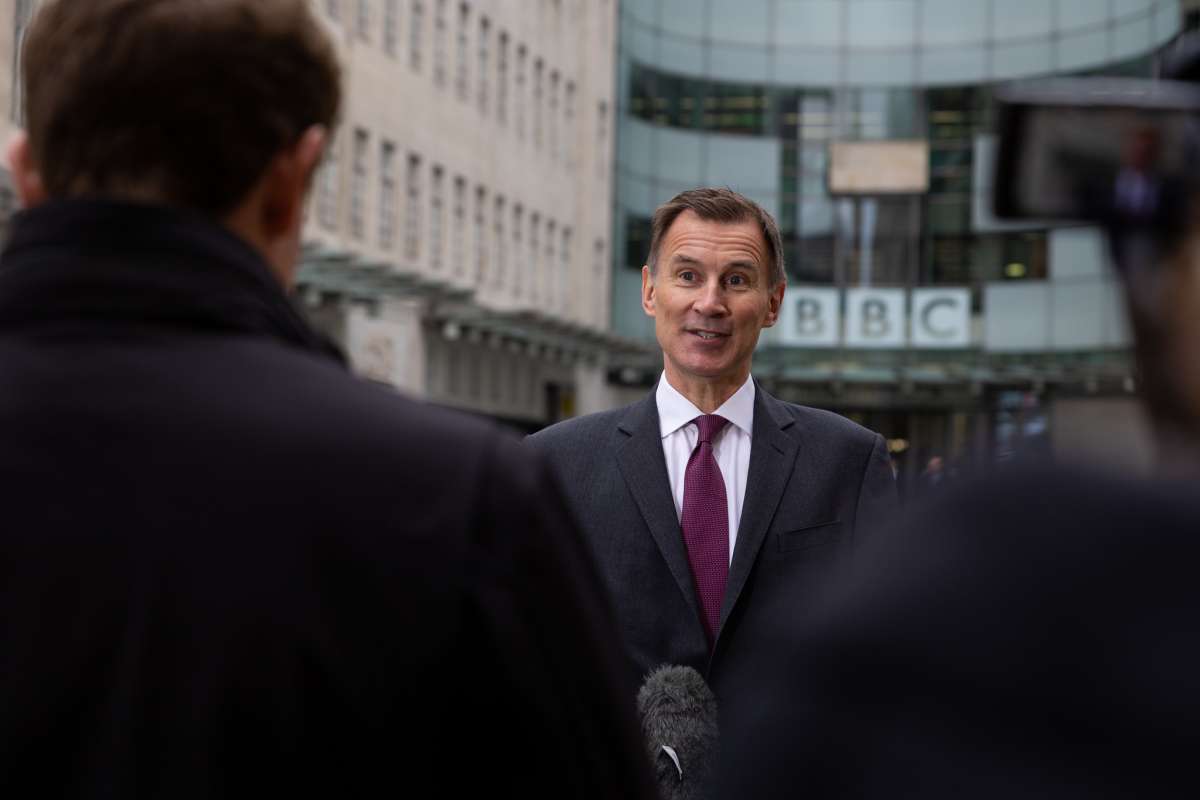The chancellor also hinted that he would like to freeze fuel duty again and said he hoped to hold another fiscal event before the election…reports Asian Lite News
The chancellor, Jeremy Hunt, has suggested a general election could be held in October. Speaking in the House of Lords, Hunt said the Treasury would need time to push through a review of Whitehall budgets before next spring, making an October date the last time when an election would be possible.
“This particular spending review has to be completed before next April, when the next financial year starts. And if the general election is in October, that will mean it’s very, very tight,” he said.
Whitehall budgets were agreed for three years in 2021 and the Treasury has been under pressure to conduct a review since last year to give departments some certainty about their income at least five years ahead.
Hunt’s comments came as No 10 announced that Rishi Sunak would host a European summit in July where he will try to corral leaders to take tougher action on illegal migration.
The next meeting of the European Political Community (EPC) will be held in Oxfordshire on 18 July at Blenheim Palace, where Winston Churchill was born.
The date is a further sign that Sunak is not planning to call an election before July. Hunt also hinted that he would like to freeze fuel duty again and said he hoped to hold another fiscal event before the election. The chancellor has not included the expected annual £5bn cost of freezing fuel duty in his five-year budget.
Under questioning by peers on the House of Lords economic affairs committee, Hunt dismissed criticism that his forecasts were “a fiction’ when they excluded the extra cost of fuel duty freezes.
“I know people call it a fiction. I don’t accept that, actually. It’s a decision that we take at every budget,” he said. “I can be quite open with you and say that I hope that if I do another fiscal event this parliament and, indeed, if I am returned as a chancellor after the next election, I would hope to continue to freeze fuel duty. But I would take that decision on the basis of the public finances at the time. It is not something that is pre-decided.”
Hunt said higher than expected immigration had increased the costs of providing state services, adding to departmental budget constraints, but he said that gave a further impetus to push through initiatives to increase productivity.
The government’s delay in setting a date for the EPC meeting was blamed on uncertainty in No 10 about when to go to the polls. European diplomats had privately expressed frustration that the UK’s domestic political considerations were holding up the summit.
The EPC was created by the French president, Emmanuel Macron, as a forum to discuss pan-European challenges, such as the war in Ukraine. This will be its fourth meeting, after gatherings in the Czech Republic, Moldova and Spain.
Sunak said in a statement: “It is an important forum for cooperation across the whole of Europe on the issues that are affecting us all, threatening our security and prosperity.
“From putting our full support behind Ukraine to stopping the scourge of people-smuggling and illegal migration, under the UK’s leadership the meeting will bring together our European friends, partners, and neighbours to address our shared challenges.”
At the last EPC meeting, hosted by Spain in October, Sunak teamed up with Giorgia Meloni, the Italian prime minister, to force illegal migration on to the agenda.
Labour leading as election looms
After 13 years of Conservative rule, Keir Starmer’s Labour has been consistently ahead in the polls since the start of 2022. The latest a general election could be called is January 2025. The prime minister, Rishi Sunak, has the power to call a general election at any point before then, but facing a potential loss, experts think that he will put it off to stay in power for longer.
In Great Britain-wide polls, the SNP vote sits between 2% and 4% of national vote share. But its geographical concentration in Scotland means it will win many more seats than other small parties with a similar national vote share, such as the Greens. Targeted Scotland-only polls give a much better indication of how well it will do in the next election than the nationwide polls above.
Polls only go so far in predicting who will win in the UK’s first-past-the-post electoral system. What matters is the number of seats each party wins in parliament, which is decided by individual races in 650 constituencies.
Seat predictions differ, but the one we show above is from the pollster Electoral Calculus. It conducts its own polls, in which it also gathers demographic data from the people it surveys.
This data is fed into a mathematical model, called a multilevel regression and post-stratification (MRP) model, with the goal of estimating the connection between characteristics such as age, gender and the area where a person lives, and which party they will vote for.
ALSO READ-Hunt hits landlords with stealth capital gains tax raid

